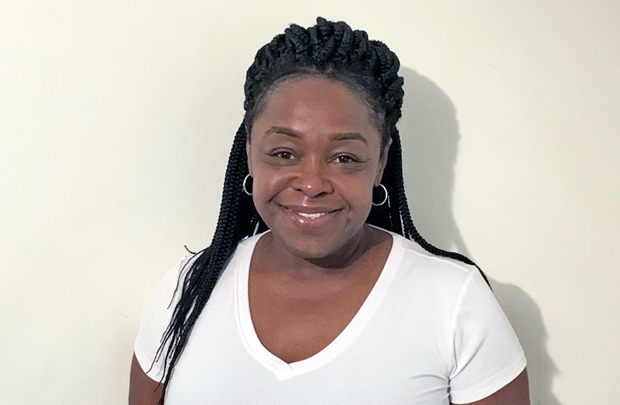
Latanga McGill is a licensing specialist who works with children and foster families in Mississippi. A foster parent suggested we feature Latanga as an Outstanding Caseworker, writing:
“Ms. McGill, there is so much I can say about her. I have had numerous foster children over the years, and Ms. McGill has always showed compassion and a genuine concern for both me and the children. She works long hours and doesn’t stop until she is comfortable placing a child. Prior to COVID-19, she would take time out of her busy day to stop by to check I needed anything. That means a lot to a foster parent.”
Latanga made time between driving to home visits and making calls to find a placement for a new teen on her caseload to talk with us.
What is your approach to working with families like this one?
Being a foster parent is hard work! A lot of the time they just need someone to listen to them, to sympathize with what they are going through.
When a child is leaving a parent’s house and the foster parents are grieving, I sometimes go into the home as the child packs up their clothes. I talk with them. I cry with them. I don’t do the speech of “Remember, this is what you signed up for.” That’s the last thing they want to hear!
I do my best to keep these families informed about the progress of a child’s case. Once I get it in my gut that a child’s plan is moving toward reunification, I start the work of preparing a family, as much as you can.
There is a lot of heartache in your job. What attracted you to this work?
My story is different from most. It was more than 10 years ago. I was married with a young son and going through a divorce. I didn’t have a job or much money, and I needed help. I swallowed my pride and went to our social service office. The first woman I encountered basically humiliated me. She told me that I was “poor.” It was terrible.
The next week, I went back to that office, and I had the opposite experience. The woman sitting across the table from me not only directed me to services and educational programs, she poured into me. She treated me with dignity. And she inspired me. I decided that once I was on my feet, I would give back what she had given to me.
"Right now, you’re not just talking to me, you’re talking to the people who have poured into me, people who trained me, and people who work beside me daily." ~ Latanga McGill, licensing specialist Share on XWhat keeps you doing this work?
Seeing that I am making a difference—that I am part of making positive change. It’s rewarding when you see a child—especially a teen—who’s been through 10 homes and is in the right family and thriving.
The other thing that keeps me going are my colleagues. I work with a great group of women. CPS is a family—whether it’s a dysfunctional family or not, it’s a family! There are so many parts, but you know your part and where you fit in. On the days that you don’t feel like getting up, you have another part telling you that you are making a difference. Right now, you’re not just talking to me, you’re talking to the people who have poured into me, people who trained me, and people who work beside me daily.
What makes a good parent?
First and foremost, a good foster parent is self-aware. A lot of people want to help children. And that’s good and important. But a person’s reasons have to go deeper than that.
A good foster parent is a nurturer. They are able to give and not expect anything in return. They are not moved by the words of a child who is hurting. And they are tough!
Some of the best caregivers that I’ve worked with are people who have experienced trauma and instability themselves. They understand where these kids are coming from and what it takes to help them heal.